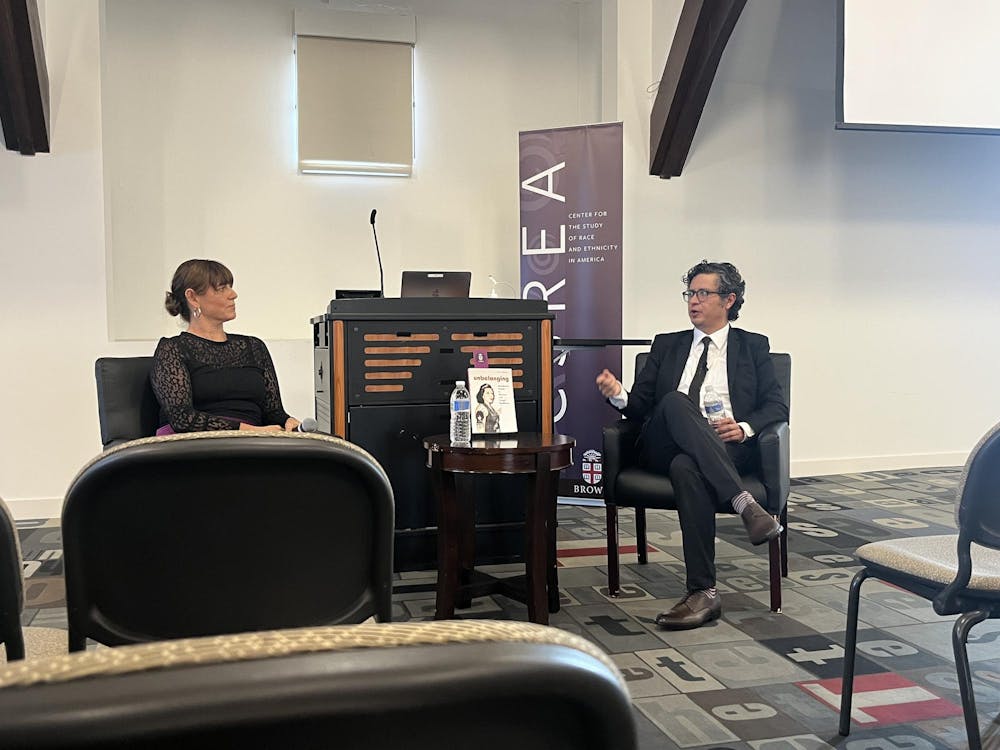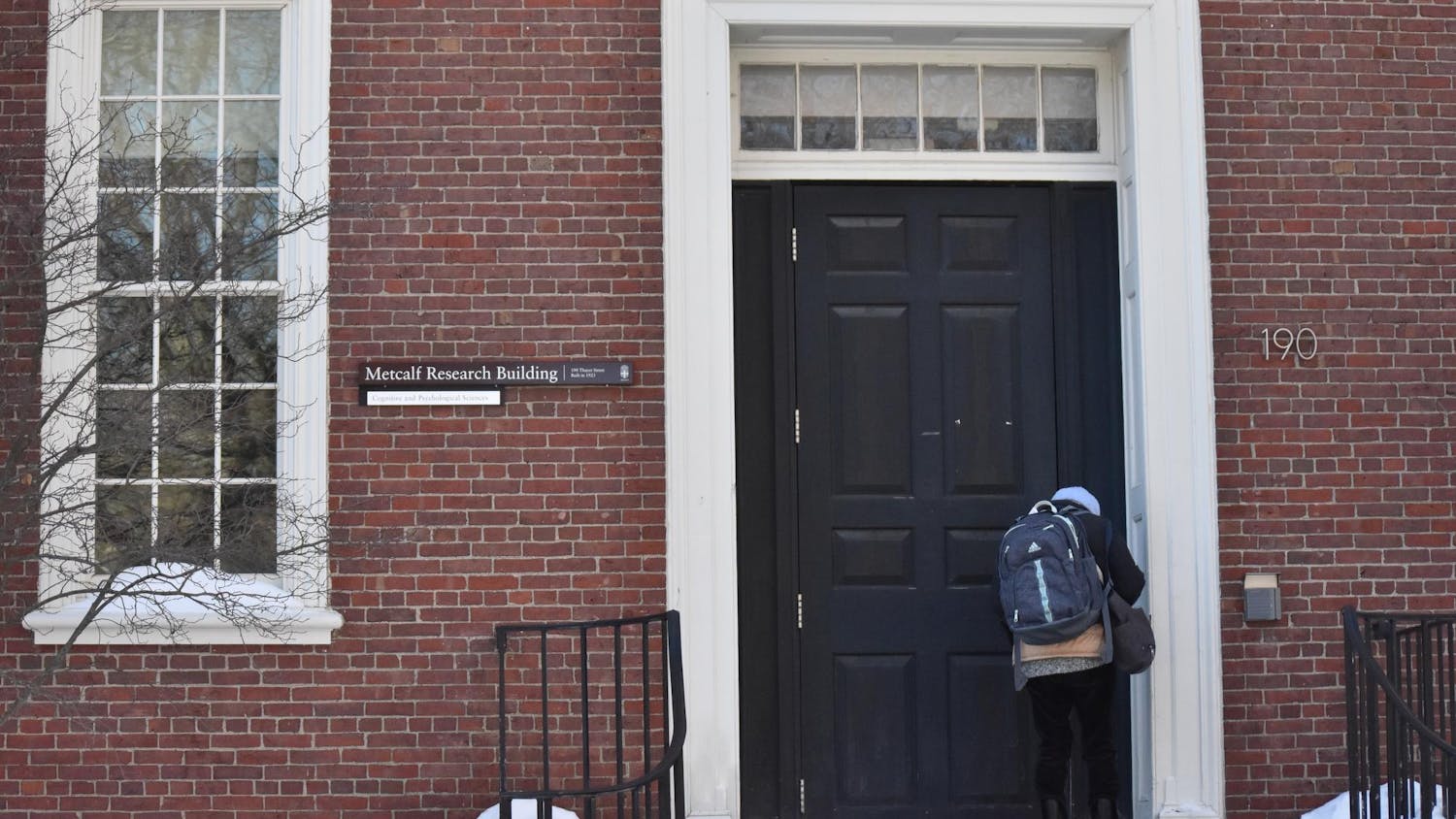Assistant Professor of Theatre Arts and Performance Studies Iván Ramos spoke at a book talk about his recent work “Unbelonging: Inauthentic Sounds in Mexican and Latinx Aesthetics” last Thursday in Pembroke Hall. The talk was the first in a series of New Book Talks sponsored by the Center for the Study of Race and Ethnicity in America.
The series intends to spotlight recent literary works that engage with race, Indigeneity and other related social issues. At the event, Chair of Modern Culture and Media Macarena Gómez-Barris provided an introduction and further commentary in addition to Ramos’s discussion.
In “Unbelonging,” Ramos explores the various dissonant and rebellious musical sounds produced by Mexican and Latinx artists throughout history. He also examines how this deviation from stereotypical cultural labels has created a niche social movement that counteracts colonialist and consumerist mentalities, crafting a new sense of “belonging” and authenticity. Ramos also incorporated significant historical events and geographic locations into his discussion of the role of musical genres like punk, metal and rock within Latinx countries and in establishing larger transnational connections.
Beginning with a brief framing of his work, Ramos said that, in focusing on such “dissonant sounds,” his book aims to unravel how they “assist or reject the terms of new liberal belonging.” His book also coins the key term “unbelonging” to describe the rejection of the labels with which oppressive nationalist systems have burdened Latinx communities through the power of nonconforming music.
Contextualizing how unconventional musical subcultures spread into Mexico and other adjacent countries, Ramos gave an overview of key interactions between Latin and Western cultures as they exchanged musical and social influences throughout history. While reading excerpts from the introduction of his book, he also presented supplementary images to elaborate on the scenes he described.
“One of the major factors in the rapid emergence of the upcoming popularity of (this sound) down in Mexico was the fact that this form allows artists to move away from the constant expectation to create work that engages with national histories and politics,” Ramos said.
Ramos’s work also focuses on how abstract aesthetics intertwine with systems of oppression and social resistance. The text examines the “relationship between unbelonging in authenticity and sonic dissonance,” as well as how these sentiments were a “mode of turning away from a number of historical, political, economic and cultural orthodoxies” and play a role in one’s “national ethnic identification,” he said.
Much of Ramos’s discussion focused on how dissonant sounds have uplifted Latinx youth, particularly blossoming artists, and played a role in opening up more inclusive spaces for them over time.
During his briefing of the book’s introduction, he momentarily discussed El Chopo, Mexico City’s largest punk rock flea market and one of the geographical protagonists of “Unbelonging.” Ramos described the market, with its extensive displays of punk memorabilia and leftist icons, as attracting young people who find their ethnic cultures “insufficiently equipped to respond to their sense of alienation.”
Ramos also discuss themes from throughout his book, which cover topics including Chicana punk, lesbian dissolution and the relationship between The Smiths’ lead singer Morrissey and collective melancholia and loneliness.
In a reflective statement following Ramos’s talk, Gómez-Barris, amongst personal praise for the book, shared her takeaways on Ramos’s interpretation of racial identity and how it in turn relates to the collective psychology of marginalized communities.
“‘Unbelonging’ is not really a belonging at all, we find out, because really to find each other is to … (bring) forth the aesthetic and the social together,” Gómez-Barris said. She added that the process of allowing art to influence real-world issues can be “potentially emancipatory.”
Shannon Constantine GS, who attended the talk after hearing about Ramos’s book in her TAPS classes, said that she liked how Ramos read out parts of the text and thought “it was useful to have other perspectives coming from the audience (and from the moderator) that summed up the book but also brought in their own lenses.”
“I also liked the talk about the process of book-making,” said Şeyda Nur Yıldırım GS, another TAPS student who attended. “These talks are helpful for us to understand academic writing.”
When asked how he sees himself within the legacy of literature and studies surrounding race and political aesthetics, Ramos emphasized his wish to uplift movements and budding revolutionary modes of thinking. “The aesthetic thinkers and objects that I’ve encountered I hope to give some sort of tribute to,” he said. “I hope that I honor what they are.”
Isabel Hahn is an Arts & Culture editor who concentrates in English and Behavioral Decision Sciences. In her free time, she enjoys watching movies, reading, and journaling.





